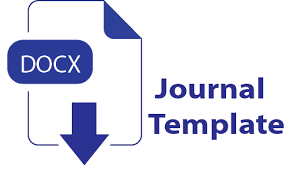Publication Ethics
an-Nahdah al-’Arabiyah aims to ensure highest ethical standards for publication to accept high-quality scientific publications and public trusts in scientific findings, as well as to promote authors of manuscripts receive credit for their ideas. All processes are maintained adhering to the Publication Ethics (COPE) and its Best Practice Guidelines in every possible way.
Plagiarism
Manuscripts that are found to have been plagiarized from a manuscript by other authors will be considered as plagiarism. Plagiarism screening process will take place in the beginning of the review process prior to being handed to the reviewer(s) and in the editing process. In case of plagiarism is detected after the manuscript is published, the editor will immediately remove the article from the issue list with a notification of publication ethics infringement.
Duplicate Submission
Manuscripts that are found to have been published elsewhere, or to be under review elsewhere will be considered as violation of duplicate submission. If authors have used their own previously published work, or work that is currently being reviewed, as the basis for a submitted manuscript, they are required to properly cite the previous work to avoid self-plagiarism (auto-plagiarism) once after both manuscripts are published.
Citation Manipulation
Submitted manuscripts that are found to include false citations whose primary purpose is to increase the number of citations to a particular author's work or articles published in any particular journal is considered a violation of citation manipulation.
Data Falsification
Submitted manuscripts that are found to have falsified research results and findings (including the manipulation of graphs, images, or charts) will be considered as a violation of data falsification.
Improper Author Attribution
All sources reiterated in the submitted manuscript must be given proper attribution as required by the license derived by the original source.
Conflicts of Interest
an-Nahdah al-’Arabiyah encourages authors to avoid any Conflicts of interests (COIs, also known as ‘competing interests’) that occur when issues outside research could be reasonably perceived to affect the neutrality or objectivity of the work or its assessment. However, any occuring potential conflicts of interest must be declared – whether or not they actually had an influence – to allow informed decisions. In most cases, this declaration will not stop work from being published nor will it always prevent someone from being involved in a review process. Upon cases of uncertainty, declaration of a potential interest or discussion with the editors is highly encouraged. Undeclared interests may lead to consequences of rejection or being re-assessed that might cause to be retracted from being published.
Conflicts of interest include:
-
Financial – funding and other payments, goods and services received or expected by the authors relating to the subject of the work or from an organization with an interest in the outcome of the work.
-
Affiliations – being employed by, on the advisory board for, or a member of an organization with an interest in the outcome of the work.
-
Intellectual property – patents or trademarks owned by someone or their organization.
-
Personal – friends, family, relationships, and other close personal connections.
-
Ideology – beliefs or activism, e.g. political or religious, relevant to the work.
-
Academic – competitors or someone whose work is critiqued.
Authors
When an author discovers a significant error or inaccuracy in his/her own published work, it is the author’s obligation to promptly notify the journal editor or publisher and cooperate with the editor to retract or correct the paper.
Authors of reports of original research should present an accurate account of the work performed as well as an objective discussion of its significance. Underlying data should be represented accurately in the paper. A paper should contain sufficient detail and references to permit others to replicate the work. Fraudulent or knowingly inaccurate statements constitute unethical behavior are unacceptable.
Must declare current or recent funding and other payments, goods or services that might influence the work. All funding, whether a conflict or not, must be declared in the ‘Acknowledgments’. Declared conflicts of interest (if any) will be considered by the editor and reviewers and included in the published article.
Editors and Reviewers
Should not be involved with a submission when they:
-
Have a recent publication or current submission with any author.
-
Collaborate or recently collaborated with any author.
-
Have a financial interest in the subject of the work.
-
Experience inability to be objective.
In any way possible, an-Nahdah al-’Arabiyah aims at avoiding assigning submissions to editors and inviting reviewers, should there is a conflict of interest; in which they should decline in any of the above situations and declare any conflicts to the journal. Reviewers must declare their interests in the ‘Confidential’ section of the review form, which will be considered by the editor. Close competitors should consider declining. Editors and reviewers must declare if they have previously discussed the manuscript with the authors during the initial editorial meeting.
Sanctions of mentioned violations
In the event that there are evidence of violations of any of the above mentioned policies in any journal, regardless of whether or not the violations occurred in a journal published by an-Nahdah al-’Arabiyah, the following sanctions will be considered:
-
Immediate rejection of the infringing manuscript.
-
Immediate rejection of every other manuscript submitted to an-Nahdah al-’Arabiyah by the author(s) of the infringing manuscript for 2 subsequent issues (12 months).
-
Blacklisted as author or demoted user access from author to reader
-
Prohibition against all of the authors from serving on the Editorial Board of an-Nahdah al-’Arabiyah.
In cases where the violations of the above policies are found to be particularly severe, the publisher reserves the right to impose additional sanctions beyond those described above.
Responsibilities
Author(s) responsibilities:
-
The author should present manuscript or research results as clearly, honestly, plagiarism-free, and ensures no manipulation of data.
-
The author is responsible to confirm submission statements of the manuscripts that have been proposed and written in the submission process.
-
The author must adhere to the requirements of publication in the form of original paper, no-plagiarism, and has never been published in journal or other publication.
-
The author must show reference of opinion and other literature being cited.
-
The author must write a manuscript or article by carrying ethic, honest and responsible as the valid scientific authorial regulation.
-
The author is prohibited to send similar manuscript any other journal or publication.
-
The author must hold no objection if the submitted manuscript is being corrected without changing its basic idea or substance.
Editor(s) responsibilities:
-
The editors of an-Nahdah al-’Arabiyah are responsible in deciding articles to be published through editorial meetings. Editor is guided by policies and journal editorial restricted by valid law concerning defamation, copyright violation and plagiarism.
-
In the process of articles acceptance, editor team works based on editorial procedures and requirement as stated in the journal policies and guidelines.
-
In the process of journal review and decision of publication (of the manuscript), the editor team does not discriminate any races, sexes, religions ethnic, citizenship, or ideology of political writer.
-
Editor and editorial team will not open any information about manuscript or article except there is permissions from the author(s).
-
A manuscript that is not published after being proposed (as submission) will be returned directly to the author and kept as archive.
Reviewer(s) responsibilities:
-
Reviewer helps editor in making decisions on the submitted manuscript.
-
Reviewer is responsible to give recommendation on reviewed manuscript.
-
Review of manuscript is done objectively and supported by clear argument.
-
Reviewer maintain secrecy of information for personal gain and incline to the double-blind review process.
Publisher responsibilities:
-
an-Nahdah al-’Arabiyah as scientific journal publisher is responsible to publish article after the process of screening, review, editing, and layouts in accordance with the rules of standard scientific journal publishing.
-
an-Nahdah al-’Arabiyah is responsible to guarantee academic freedom of editor and reviewer in running their job.
-
an-Nahdah al-’Arabiyah is responsible to keep privacy and protects intellectual property and copyright as well as editorial freedom.
Reviewing of manuscripts
Every submitted paper is independently reviewed by at least two peer-reviewers. Decision for publication, amendment, or rejection is based upon their reports/recommendation. If two or more reviewers consider a manuscript unsuitable for publication in this journal, a statement explaining the basis for the decision will be sent to the authors within three months of the submission date.
Withdrawal of Manuscripts:
The author is not allowed to withdraw submitted manuscripts, because the withdrawal is a waste of valuable resources that editors and referees spent a great deal of time processing submitted manuscripts and works invested by the publisher.
If the author still requests withdrawal of his/her manuscript when the manuscript is still in the peer-reviewing process, the author and his/her affiliation will be blacklisted for publication in this journal. However, it is unethical to withdraw a submitted manuscript from one journal if accepted by another journal.
The withdrawal of the manuscript after the manuscript is accepted for publication. The withdrawal of the manuscript is only allowed after the withdrawal penalty has been carried out by the author, namely by replacing other writings of comparable quality as directed by editors and reviewers. Posts that will be published in the next edition and entries that are withdrawn will be marked with "Retraction". If the author doesn't agree to the penalty, the author and his/her affiliation will be blacklisted for publication in this journal. Even, his/her previously published articles will be removed from our online system.
Article Retraction:
Infringements of professional ethical codes, such as multiple submission, bogus claims of authorship, plagiarism, fraudulent use of data, or the like. Occasionally a retraction will be used to correct errors in submission or publication. The retraction of an article by its authors or the editor under the advice of members of the scholarly community has long been an occasional feature of the learned world. Standards for dealing with retractions have been developed by a number of library and scholarly bodies, and this best practice is adopted for article retraction by Elsevier:
- A retraction note titled “Retraction: [article title]” signed by the authors and/or the editor is published in the paginated part of a subsequent issue of the journal and listed in the contents list.
- In the electronic version, a link is made to the original article.
- The online article is preceded by a screen containing the retraction note. It is to this screen that the link resolves; the reader can then proceed to the article itself.
- The original article is retained unchanged save for a watermark on the .pdf indicating on each page that it is “retracted.”
- The HTML version of the document is removed.














